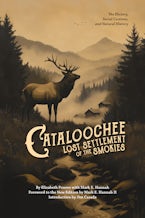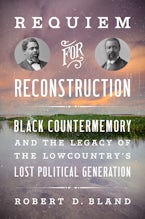The contested landscape of memory and truth about North Carolina Reconstruction.
Five years after the Civil War, North Carolina Republican state senator John W. Stephens was found murdered inside the Caswell County Courthouse. Stephens fought for the rights of freedpeople, and his killing by the Ku Klux Klan ultimately led to insurrection, Governor William W. Holden’s impeachment, and the early unwinding of Reconstruction in North Carolina. In recounting Stephens’s murder, the subsequent investigation and court proceedings, and the long-delayed confessions that revealed what actually happened at the courthouse in 1870, Drew A. Swanson tells a story of race, politics, and social power shaped by violence and profit. The struggle for dominance in Reconstruction-era rural North Carolina, Swanson argues, was an economic and ecological transformation. Arson, beating, and murder became tools to control people and landscapes, and the ramifications of this violence continued long afterward. The failure to prosecute anyone for decades after John Stephens’s assassination left behind a vacuum, as each side shaped its own memory of Stephens and his murder.
The malleability of and contested storytelling around Stephens’s legacy presents a window into the struggle to control the future of the South.











